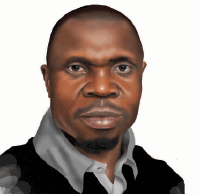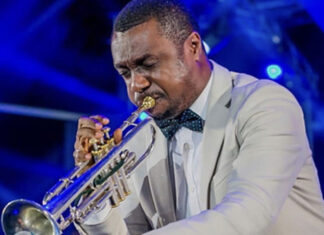It was reassuring to hear President Goodluck Jonathan say during the media chat on Wednesday that elections will hold as rescheduled, and that a new administration would be inaugurated on May 29.
We, however, expected these to happen because they are statutorily in order. The 1999 Constitution, as amended, clearly states what should happen; and the Electoral Act, as amended, explains how they can happen.
For Jonathan to come up with a promise to enforce those provisions of the law means that someone had either doubted whether he would do it or must have lied that he won’t implement them.
In addition, the president laughed at speculations that he was about sacking the current INEC chairman and instal someone who would do his bidding during the forth-coming elections.
On the general elections, he said: “Let me reassure Nigerians that elections will be conducted in this country and a government will be inaugurated on May 29 this year. Let them not be perturbed by stories that are not real.
“I appointed the INEC chairman and all the resident electoral commissioners, but I also have the constitutional powers to remove them; but will not do so. I have not told anyone that I am going to remove Jega.”
Before Jonathan’s clarification on Wednesday, there were media reports that he had concluded arrangements to send Jega, the INEC boss, on a compulsory three months terminal leave, which will culminate in his retirement in June.
A colleague even named a respected technocrat from the South West as Jega’s successor. Even when Jega said he was still in charge and that no one had informed him of any such arrangement, he was ignored.
There is no doubt in anybody’s mind that rumours regarding these issues were planted in the media by the opposition parties whose sole aim was to discredit the ruling government and cause confusion in the country.
Yes, the opposition party is expected to fight the ruling party; raise issues and sway the citizens to its side. However, when truth is sacrificed and falsehood elevated to the throne of believability, then there is something fundamentally wrong.
Stories about how Jonathan planned to extend his tenure by two years also made rounds in the media. It baffles me sometimes how an editor will publish such a story knowing fully that it is outright falsehood.
But why do politicians lie? The question should even be: why do people lie? But in particular, why do journalists lie for politicians? Or why do politicians employ journalists to lie for them?
For politicians, lying is a tool of the trade. While they lie against others, they do not like to be lied against. They lie with passion and passionately hate to be lied against.
Philip Dorrell said in 2006 that the reason politicians lie so much is not because they are pathological liars; or at least not just because they are pathological liars, but because we expect too much of them.
In the first instance, he said we expect them to take political positions on issues; and this position is intended to appeal to a particular constituency. We also expect politicians to take moral positions.
Lies, especially political lies, travel at unimaginable speed. And they are believed without question. It was the legendary Mark Twain who once said that “a lie can travel half way around the world while truth is putting on its shoes”.
A museum medical curator, Katie Maggs, says lying may seem to be an unavoidable part of human nature, but it’s an important part of social interaction.
One reason politicians lie, says Perkel, is because the public doesn’t want to hear the truth. He says people or the electorate want to hear what they want to hear.
He declares that: “When two candidates are running (for election) and one of them tells the truth and the other says what the public wants to hear, the one who says what the public wants to hear wins the election.”
Thus, he says, “…if you want to win an election, you better start lying, because the guy who’s telling you the truth doesn’t have a chance.”
That’s mind-blowing. What he is forcing down our throats here is that voters believe in candidates who lie more than those who do not lie because lying is smooth and exciting.
Lynn Vavreck, author of The Message Matters: The Economy and Presidential Matters, also puts the reasons for lying by politicians to the advantage of their supporters. She says: “We might not tolerate lying from the kindergarten, but when candidates engage in half-truths, there is something in it for their supporters.”
In her book, Lying: Moral Choice in Private and Public Life, Sissela Bok says politicians might lie when they think they will get away with it, hoping that enough people will be misled and that others won’t hold it against them.
So, in politics, lying is strategic; it is planned and well-thought out. As cited by George Lakoff, politicians lie to advance or protect what they see as a moral endeavour.
Politicians hire journalists to lie for them because they believe when a journalist lies, other journalists will believe the lies and write about them. The reason is that journalists, traditionally, do not lie.
Beyond using falsehood as an election-winning strategy, politicians and those lying for them must understand that no liar will go to heaven; and that no quantity of lies can erase the truth.













